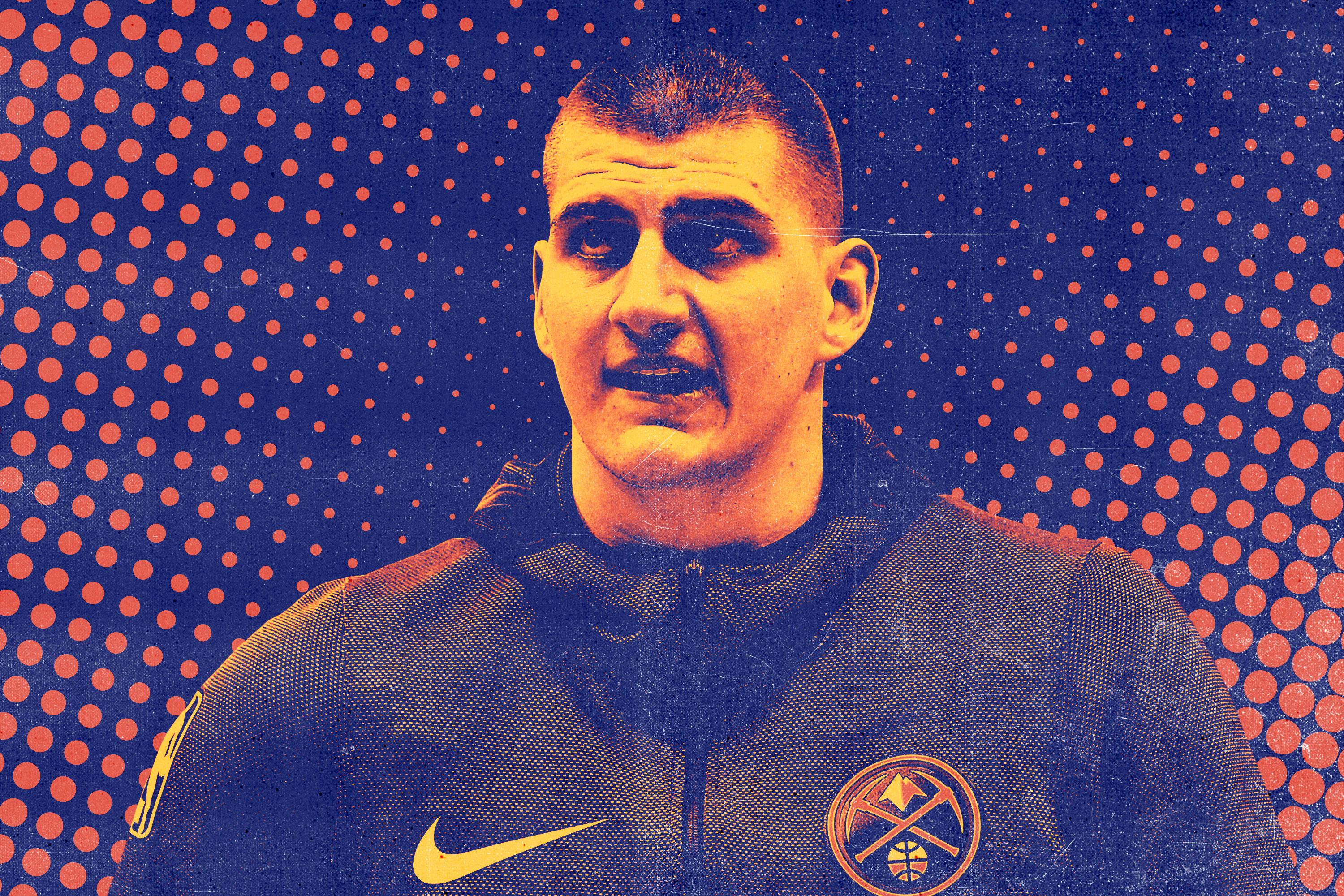
The only thing wrong with the Denver Nuggets may be that too much came too soon. After coming one win shy of its first playoff berth in five years last season, Denver entrenched itself as one of the NBA’s elite teams practically from the jump of this season. It went on to sit atop the Western Conference for elongated stretches, during which Nikola Jokic played like a dad-bod Weapon X and the team as a whole even played some non-awful defense along the way. Alas, after earning the West’s 2-seed, Denver came just short of its first since Western Conference finals appearance since the days of Carmelo Anthony, blowing a 17-point lead in Game 7 at home Sunday and losing its second-round series with the Portland Trail Blazers.
Despite the ugly finish, the hopes are still, dare I say, high in Denver. Its three best players—Jokic, Jamal Murray, and Gary Harris—are all 24 or younger, and fellow youngsters Monte Morris (23) and Malik Beasley (22) acquitted themselves well along the way. But the front office will face a few questions this offseason that could define the franchise’s trajectory over the next decade. We break down the three biggest:
Will Paul Millsap return?
Outside of internal development, the clearest sign that the Nuggets had taken The Leap as an organization was landing Millsap, fresh off a fourth straight All-Star appearance, as a free agent in the summer of 2017. Millsap was already 32, and the Nugs had to pay him a hefty sum (three years, $90 million) to join them, but winning the free-agent derby for a player of his caliber was a major victory, optically and on the court, for the small-market franchise. Perhaps emboldened by the success, the Nuggets decided to shoot their shot with LeBron James the following summer; that one didn’t go as well.
Two years after Millsap signed on, the power forward may yet again mark an inflection point for the Nuggets. The final year of his deal is a team option. And while the partnership has worked out for both sides thus far—Millsap was Denver’s best regular this season according to net rating—one more year at $30 million wouldn’t make sense for either party; the 34-year-old would, I’m assuming, prefer some long-term security over one lump payment, and shelling out the 16th-highest salary in the NBA for a player who is a third or fourth option on offense at this point probably isn’t ideal for the franchise, either.
Millsap and the Nuggets may come to some sort of agreement—probably a new contract with more years but a smaller yearly salary. (For what it’s worth, Millsap told The Denver Post in March that he could “see myself being here long-term, for the rest of my career.”) But the team could also keep its bold streak alive and use the $20 million in cap space that would open up by declining Millsap’s option and chase other options. Would pairing Nikola Mirotic with Jokic, his Balkin bro, give the Nugs the league’s most dangerous offense? Mirotic wouldn’t stabilize the defense in the way that Millsap has, but he is also six years younger. These are the kinds of forward-looking decisions Denver will need to think hard on if it wants to ensure that this season wasn’t just a one-hit wonder.
Will Michael Porter Jr. play?
As disappointed as the Nuggets were to miss the playoffs last year, it gave a team already flush with young talent one more shot in the draft lottery. And instead of adding a specialist or a more seasoned prospect to fill out its rotation for this year’s playoff push, Denver made the biggest dice roll in draft by selecting Porter, bad back and all, at no. 14. Porter, now 20, was widely regarded as one of the most talented players in the 2018 class before back surgery limited him to just three games in college at Missouri. He had a second surgery soon after the draft, and wound up redshirting the 2018-19 season. But there’s still an elite player in there, somewhere, and all signs point to next season being when we get to see whether he can get back on the path toward stardom. The Athletic’s Joe Vardon reported recently that Porter is “fully healthy” and will play at Las Vegas summer league, where he’s likely to debut against whichever team drafts Zion Williamson.
Even if Porter is indeed healthy, he could wind being just another shoot-first finesse scorer—Big Jamal Murray, basically—on a team with plenty of mouths to feed already. Or he could be the go-to scorer in crunch time that Jokic doesn’t seem completely comfortable being at this point. We’ll see next season whether the gamble pays off.
Should Jamal Murray be extended before next season? And if so, for how much?
The Nuggets didn’t mess around with Jokic’s contract negotiations last summer. Instead of keeping him on the books for one more season at the low, low price of $1.6 million and letting him hit unrestricted free agency the following summer, the franchise declined his team option and locked him down for the maximum number of years (five) and the maximum amount of money ($147 million). The decision on Murray’s next deal might not be as cut-and-dried.
Murray didn’t get any more consistent or efficient in his third season, but on a team built around a player who is pass-first to a fault, his combination of irrational confidence and dead-eye shooting is far more valuable than it would be elsewhere. Take the Nuggets’ Game 2 win over the Spurs, for example: Murray missed every shot he took through three quarters and was well on his way to a second straight playoff no-show; then he scored 21 points in the fourth and probably saved Denver’s season. That’s valuable. But everything that came before his late surge still counts. Which makes coming up with an appropriate salary pretty complicated.
The other issue is Denver’s luxury-tax bill. The Nuggets brass has said that they’re willing to pay to keep this core intact; and yet, it also traded Wilson Chandler, Darrell Arthur, Kenneth Faried, a first-round pick, and two seconds in order to dodge the tax last summer. It’s possible that Denver was thinking further ahead and specifically wanted to avoid the more punitive repeater tax, which dishes out harsher fines for being over the tax threshold for multiple seasons. Whatever the Nuggets decide to do with Millsap and Murray will give us a definitive answer.

